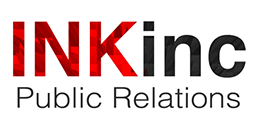You’re about to leave the safety of the client and PR world where puffery and spin reigns and enter the counter universe of the media with its own set of rules of engagement. Don’t worry. There’s nothing particularly complex or purposely obtuse about them – just a simple code of behavior which most of the time honors good judgment and respect for working with the media – reporters, editors, producers, and influencers. Nothing fancy, just ten rules that good common sense wouldn’t dictate if we all could possess such, all the time.
1.Know your media and your pitch…and make sure the two are compatible before you ever make a move. Failure to adhere to this first rule is the number one reason your client’s story will never be told. Nothing gets a pitch deleted or headed to the trash can quicker; nothing will lose you or your client’s credibility faster than insulting the media with a misdirected pitch.
2. Stick to news and not puffery…and news means “new” and “immediate”, not yesterday or last month. Don’t ever try to sell the media… inform. Do not feel that you need to explain why the client is so cool with tons of flattering adverbs in the first paragraph before ever getting to the news. To do so and you’re deleted before you have the opportunity. Get your news out first and succinctly. If the news is good enough, interest in the rest of the story will follow.
3. Notice to CEO’s…yes, and all my fellow control freaks… you are no longer in control. This isn’t a negotiation for press coverage…it’s a plea. Yes, as stated earlier, it is a symbiotic relationship, but at this juncture, face it, you need them more than they need you.
4. Save a tree and stop writing all the press releases. Save those releases for when something is really important and newsworthy (see number two) like earnings or a major new customer or hire. And even then, allow the news to be pitched directly just prior to being released. I once worked for a large PR agency that had a client CEO with a military background that took pride in believing that the single best way to raise his company’s media profile was to “carpet bomb” the press with two to three press releases every week – no matter the subject nor the news. It raised the company’s profile all right but in the completely opposite direction. After about the second week of carpet bombing of inane releases full of jibber jabber and sales messaging rather than information, the media began to shut down any interest in covering this client. Carpet bombing may make a lot of money for the professional PR wire services and hourly PR worker bees, but it’s strictly a no-no for the media.
5. Avoid industry jargon and acronyms… don’t assume a reporter, especially general business reporters, to know or even care that deeply about your industry. Keep it short, simple, interesting, and most importantly, newsworthy in lay English. This is particularly a problem within the tech industry where over the last ten years we’ve become inundated with ‘tech speak.” We used to refer to this kind of straight talk as an elevator pitch or how to explain your job to your grandmother in twenty-five words or less. Now, that may sound like an insult to the average well-educated reporter or editor, but not really. Most reporters are in a hurry and wish to be communicated in a direct, clear way. Even the most well-educated may not be familiar with all the terminology and evolving acronyms. Worse, some reporters find some inside jibber-jabber to be patronizingly insulting.
6. Your word alone doesn’t count alone… cite verifiable third-party experts and statistics. Don’t expect the media to do your homework, but do expect the media to double and triple check it for relevancy and accuracy.
7. The reporter/producer is not your foil or your buddy. Their job is to report the news. Never assume there is ever such a thing as ‘off the record.’ If you say it, expect to see it.
8. Be sensitive to cost and convenience of the media’s time; know and respect deadlines… theirs, not just yours. Their budgets and staffs have shrunk more than yours.
9. Keep your promises. If you said you’d get back with an answer or clarification, or an important response, do so in a timely manner. If you can’t, for whatever reason, be honest and let them know. Don’t stall or try to spin your way out of it. The media will know, and you and your client will be the worse for it.
10. Follow up and follow up again if needed…but then step away and let them do their job.
Lastly…they’ll always be exceptions. That’s the eleventh rule.
